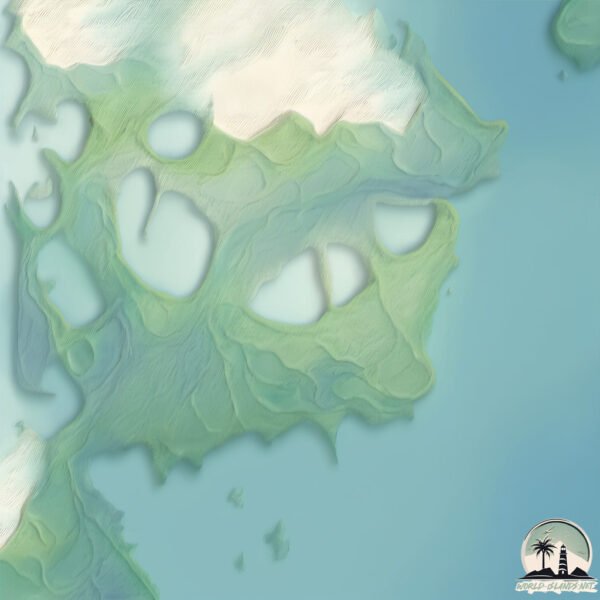Guartuqun

Welcome to Guartuqun, a Temperate island in the Eastern China Sea, part of the majestic Pacific Ocean. This guide offers a comprehensive overview of what makes Guartuqun unique – from its geography and climate to its population, infrastructure, and beyond. Dive into the details:
- Geography and Size: Explore the island’s size and location.
- Climate and Weather: Weather patterns and temperature.
- Topography and Nature: Uncover the natural wonders of the island.
- Infrastructure and Travelling: Insights on reaching, staying, and making the most of your visit.
- News and Headlines: Latest News.
Geography and size of Guartuqun
Size: 1.312 km²
Coastline: 10.7 km
Ocean: Pacific Ocean
Sea: Eastern China Sea
Continent: Asia
Guartuqun is a Small Island spanning 1.3 km² with a coastline of 10.7 km.
Archipel: –
Tectonic Plate: Okinawa – Located in the East China Sea, near the Ryukyu Islands and Taiwan, it’s involved in the subduction zone between the Philippine Sea Plate and the Eurasian Plate.
The geographic heart of the island is pinpointed at these coordinates:
Latitude: 26.71056781 / Longitude: 119.64634267
Climate and weather of Guartuqun
Climate Zone: Temperate
Climate Details: Humid Subtropical Climate
Temperature: Hot Summer
Climate Characteristics: With continuous rainfall and hot summers, this climate is common in some coastal regions, supporting diverse vegetation.
Topography and nature of Guartuqun
Timezone: UTC+08:00
Timezone places: Australia/Perth
Max. Elevation: 11 m
Mean Elevation: 8 m
Vegetation: Evergreen Needleleaf Forest
Tree Coverage: 19%
The mean elevation is 8 m. The highest elevation on the island reaches approximately 11 meters above sea level. The island is characterized by Plains: Flat, low-lying lands characterized by a maximum elevation of up to 200 meters. On islands, plains are typically coastal lowlands or central flat areas.
Dominating Vegetation: Evergreen Needleleaf Forest
Dominated by evergreen coniferous trees such as pines and firs, which retain their needle-like leaves throughout the year. These forests are often found in cooler climates. Guartuqun has a tree cover of 19 %.
Vegetation: 4 vegetation zones – Diverse Island
Four distinct vegetation zones mark these islands as ecologically diverse. They might feature varied landscapes such as forests, beaches, grasslands, and rocky areas. Such diversity reflects the island’s complex ecological interactions and varied habitats, which can support a rich array of wildlife and plant species.
Infrastructure and Travelling to Guartuqun
Does the island have a public airport? no.
There is no public and scheduled airport on Guartuqun. The nearest airport is Matsu Beigan Airport, located 66 km away.
Does the island have a major port? no.
There are no major ports on Guartuqun. The closest major port is FUZHOU, approximately 79 km away.
The mean population of Guartuqun is 946 per km². Guartuqun is Densely Populated. The island belongs to China.
Continuing your journey, Sandu Dao is the next notable island, situated merely km away.
China is classified as Emerging region: BRIC: Brazil, Russia, India, and China – Economies noted for their rapid growth and increasing influence on global affairs. The level of income is Upper middle income.
News – Latest Updates and Headlines from Guartuqun
Stay informed with the most recent news and important headlines from Guartuqun. Here’s a roundup of the latest developments.
Please note: The data used here has been primarily extracted from satellite readings. Deviations from exact values may occur, particularly regarding the height of elevations and population density. Land area and coastline measurements refer to average values at mean high tide.
